The book under title ‘Nursing Foundation: Concepts and Perspectives’ has been written in lucid style, simple language and with goal-oriented outlook. It will help the students of undergraduate nursing programme at the post basic level which is a broad based education within an academic framework, to develop understanding of philosophy, objectives, responsibilities of nursing profession; to build upon the skills and competence acquired at the diploma level. It will orient them to the current concepts involved in practice of nursing and developments in nursing profession; direct to upgrade their critical thinking skills, competencies and standards required for practice of professional nursing and to follow nursing process. This book provides up-to-date information in accordance with the latest syllabus prescribed to them and they will be able to identify professional, ethical, and legal aspects of nursing profession, current trends in health and nursing and steps of nursing process. Each chapter deals with a specific aspect of foundation of nursing with complete clarity of expression, simplicity to exposition, intensive text and adequate illustrative material in the form of diagrams, flow charts and tables followed by key points, chapter end questions comprising of essay type questions, short answer questions and multiple choice questions at the end of each chapter. The chapters have been sequenced to facilitate ease and continuity in reading and understanding, and at the end of each chapter, related references have been given as suggested reading.
Nursing Foundation: Concepts and Perspectives
KSh 6,580.00
The book under title ‘Nursing Foundation: Concepts and Perspectives’ has been written in lucid style, simple language and with goal-oriented outlook. It will help the students of undergraduate nursing programme at the post basic level which is a broad based education within an academic framework, to develop understanding of philosophy, objectives, responsibilities of nursing profession; to build upon the skills and competence acquired at the diploma level. It will orient them to the current concepts involved in practice of nursing and developments in nursing profession; direct to upgrade their critical thinking skills, competencies and standards required for practice of professional nursing and to follow nursing process. This book provides up-to-date information in accordance with the latest syllabus prescribed to them and they will be able to identify professional, ethical, and legal aspects of nursing profession, current trends in health and nursing and steps of nursing process. Each chapter deals with a specific aspect of foundation of nursing with complete clarity of expression, simplicity to exposition, intensive text and adequate illustrative material in the form of diagrams, flow charts and tables followed by key points, chapter end questions comprising of essay type questions, short answer questions and multiple choice questions at the end of each chapter. The chapters have been sequenced to facilitate ease and continuity in reading and understanding, and at the end of each chapter, related references have been given as suggested reading.
2 in stock
Related products
-
Applying the Nursing Process: A Tool for Critical Thinking
KSh 17,835.00This trusted resource combines the practical guidance students need to understand each phase of the nursing process with an emphasis on critical thinking, focusing on both independent and collaborative responsibilities facing today’s nurses. Using straightforward language, abundant examples, and real case scenarios, the book addresses the nurse’s role as a caregiver and decision-maker in a range of settingsfrom clinic to the home, community, research, and acute care arenas. A new focus and design help readers build essential critical thinking and problem solving skills and apply them within the nursing process framework.
A companion Website provides a variety of tools such as patient self-assessment tool, clinical decision map, NCLEX® resources, and much more.
-
Study Guide for Fundamentals of Nursing, 11th Edition
KSh 8,370.00Get the most from your fundamentals course with the Study Guide for Fundamentals of Nursing! Corresponding to the chapters in Fundamentals of Nursing, 11th Edition, this completely updated study guide helps reinforce your understanding of key nursing concepts through review questions, exercises, and learning activities. New Next Generation NCLEX®-style question types and brief case studies help you study and prepare for your exams — at the same time! With the purchase of a new text, bonus online skills checklists walk you through all of the book’s fundamental nursing procedures.
-
Wong’s Nursing Care of Infants and Children, 9th Edition
KSh 9,660.00The most trusted authority in pediatric nursing, Wong’s Nursing Care of Infants and Children provides unmatched, comprehensive coverage of pediatric growth, development, and conditions. Its unique ‘age and stage’ approach covers child development and health promotion as well as specific health problems organized by age groups and body systems. Leading pediatric experts Dr. Marilyn Hockenberry and David Wilson provide an evidence-based, clinical perspective based on nearly 30 years of hands-on experience. Easy to read and extensively illustrated, this edition focuses on patient-centered outcomes and includes updates on topics such as the late preterm infant, immunizations, the H1N1 virus, and childhood obesity.
- A clear, straightforward writing style makes content easy to understand.
- Unique Evidence-Based Practice boxes help you apply both research and critical thought processes to support and guide the outcomes of nursing care.
- Unique Atraumatic Care boxes contain techniques for care that minimize pain, discomfort, or stress.
- Unique Critical Thinking exercises help you test and develop your own analytical skills.
- A unique focus on family content emphasizes the role and influence of the family in health and illness with a separate chapter, discussions throughout the text, and family-centered care boxes.
- Nursing Care Guidelines provide clear, step-by-step, detailed instructions on performing specific skills or procedures.
- Unique Emergency Treatment boxes serve as a quick reference for critical situations.
- Unique Cultural Awareness boxes highlight ways in which variations in beliefs and practices affect nursing care for children.
- A developmental approach identifies each stage of a child’s growth.
- Health promotion chapters emphasize principles of wellness and injury prevention for each age group.
- Student-friendly features include chapter outlines, learning objectives, key points, references, and related topics and electronic resources to help you study and review important content.
- A community focus helps you care for children outside the clinical setting.
- Nursing Care Plans include models for planning patient care, with nursing diagnoses, patient/family goals, nursing interventions/rationales, expected outcomes, and NIC and NOC guidelines.
- Nursing Tips include helpful hints and practical, clinical information, and Nursing Alerts provide critical information that must be considered in providing care.
- Unique! Quality patient outcomes are highlighted for major diseases and disorders, reflecting the QSEN focus on patient-centered outcomes.
- Pathophysiology reviews include special illustrations to explain complicated disease processes.
- Complementary & Alternative Therapy boxes include timely information on alternative medicine as a part of complete, comprehensive care.
- Research Focus boxes include the latest research impacting pediatric nursing today.
- Drug Alerts highlight important drug-related information for safe, appropriate care.
- Updates include coverage of hot topics such as the late preterm infant, immunizations, the H1N1 virus, and childhood obesity.
- Unique! Family-Centered Care boxes include features on family-related topics
-
Applied Theories in Occupational Therapy 2nd Edition by Roseanna Tufano (Author), Marilyn B. Cole (Author)
KSh 11,000.00Applied Theories in Occupational Therapy: A Practical Approach, Second Edition provides a system-based, comprehensive overview of the theories, models, and frames of reference that influence occupational therapy around the world. Esteemed authors Marilyn B. Cole and Roseanna Tufano have updated their foundational text with an evidence-based focus derived from their experiences of more than 30 years teaching theoretical content to students.
Applied Theories in Occupational Therapy: A Practical Approach, Second Edition offers practical templates to help readers learn the key constructs of each theory and assimilate knowledge based on Mosey’s organizational structure. Each theory-based chapter is designed for ease in gathering content knowledge and comparing theories in a distinctive manner. The book includes:
- Summaries of the current trends found in practice, along with external influential models of health and wellness impacting populations of concern
- Exploration of some of the most common occupation-based models around the world. Each model’s holistic conceptual nature is described, including theoretical assumptions and practice guidelines for evaluation and intervention
- Reviews of common frames of reference found in evidence-based practice, which address the secondary and tertiary needs of common populations
In this Edition, learning activities and case-based analyses strengthen the application of theory into current practice contexts. Practical guidelines assist the reader in formulating an evaluation process and determining the relevant intervention strategies that promote occupational participation, engagement, and functioning across the lifespan and the continuum of health.
-
Writing for Nursing and Midwifery Students
Combining a theoretical approach with practical activities, this book is invaluable for nursing and midwifery students and will help them to master the basics of writing at university. It equips students with the skills needed to examine cognitive processes such as reflection and critical thinking and includes essential information on referencing correctly and avoiding plagiarism. Going beyond the traditional essay, it provides support and guidance on producing care critiques, action plans, portfolios and journal article reviews alongside complex argumentative writing and undergraduate dissertation proposals.
Written in an engaging and accessible style, this is a comprehensive writing toolkit for students of nursing, midwifery, health and social care. Suitable for students of all levels, it is ideal for use in class or for independent study.
New to this Edition:
– A new section on writing systematic reviews and responding to case studies for assessment purposes
– Extended content on referencing, engaging with sources and critical and argumentative writing, featuring new examples and exercises -
An Introduction to Forensic Genetics, 2nd Edition
KSh 16,198.00This is a completely revised edition of a comprehensive and popular introduction to the fast moving area of Forensic Genetics. The text begins with key concepts needed to fully appreciate the subject and moves on to examine the latest developments in the field. Now illustrated in full colour throughout, this accessible textbook includes numerous references to relevant casework. With information on the full process of DNA evidence from collection at the scene of a crime to presentation in a legal context this book provides a complete overview of the field.
Key Features:
- Greater in-depth coverage of kinship problems now covered in two separate chapters: one dealing with relationships between living individuals and the other covering identification of human remains.
- New chapter on non-human forensic genetics, including identification of bacteria and viruses, animals and plants.
-
Nursing Foundation: Concepts and Perspectives
KSh 6,580.00The book under title ‘Nursing Foundation: Concepts and Perspectives’ has been written in lucid style, simple language and with goal-oriented outlook. It will help the students of undergraduate nursing programme at the post basic level which is a broad based education within an academic framework, to develop understanding of philosophy, objectives, responsibilities of nursing profession; to build upon the skills and competence acquired at the diploma level. It will orient them to the current concepts involved in practice of nursing and developments in nursing profession; direct to upgrade their critical thinking skills, competencies and standards required for practice of professional nursing and to follow nursing process. This book provides up-to-date information in accordance with the latest syllabus prescribed to them and they will be able to identify professional, ethical, and legal aspects of nursing profession, current trends in health and nursing and steps of nursing process. Each chapter deals with a specific aspect of foundation of nursing with complete clarity of expression, simplicity to exposition, intensive text and adequate illustrative material in the form of diagrams, flow charts and tables followed by key points, chapter end questions comprising of essay type questions, short answer questions and multiple choice questions at the end of each chapter. The chapters have been sequenced to facilitate ease and continuity in reading and understanding, and at the end of each chapter, related references have been given as suggested reading.
-
Children with Developmental Disabilities: A Training Guide for Parents, Teachers and Caregivers First Edition
KSh 6,370.00This manual is designed as a guide for parents, teachers and caregivers dealing with children up to the age of six who are afflicted by developmental disabilities. The author provides details of more than 400 non-formal activities along with guidelines on how to use them both at home and in pre-school settings.
The book is divided into three sections:
– the first describes a wide range of impairments, disabilities and handicaps along with information on their manifestations and characteristics. The author also outlines steps to handle negative or problem behaviour during training.
– the next section presents a Comprehensive Activity Checklist for pre-school children. All items have been empirically tested and are located on a scale of increasing difficulty.
– the third section comprises two chapters. The first is a `do-it-yourself` activity assistance guide which will be of immense use to trainers, caregivers, teachers and parents. In the last chapter, Dr Venkatesan discusses contemporary problems and issues related to the rights and privileges of persons with developmental disabilities

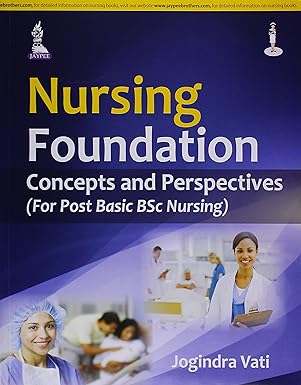
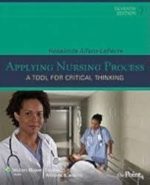
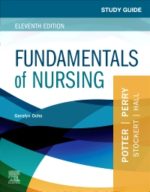
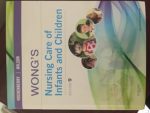
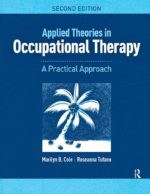
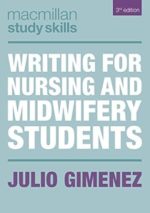

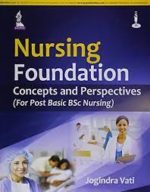
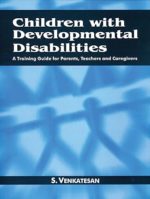
Be the first to review “Nursing Foundation: Concepts and Perspectives”